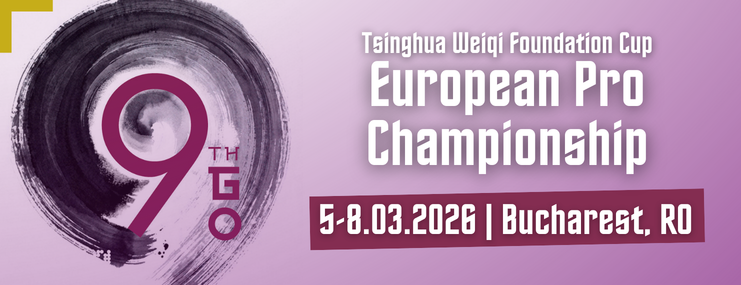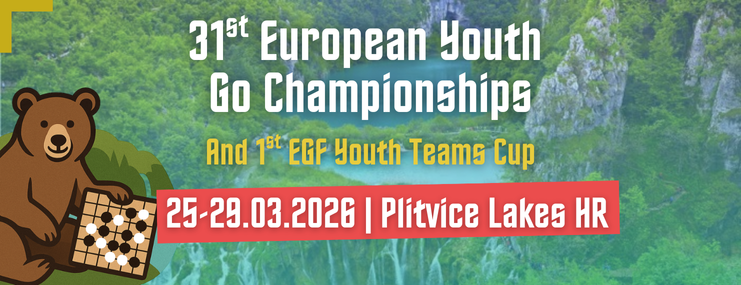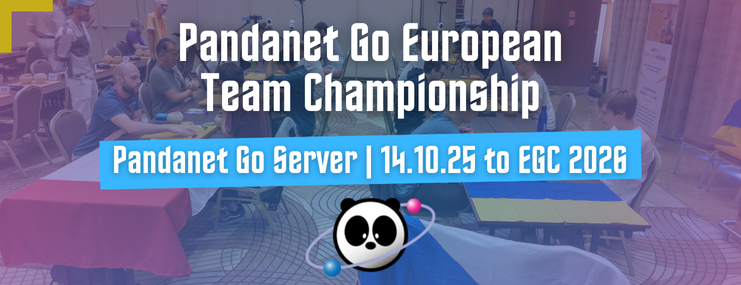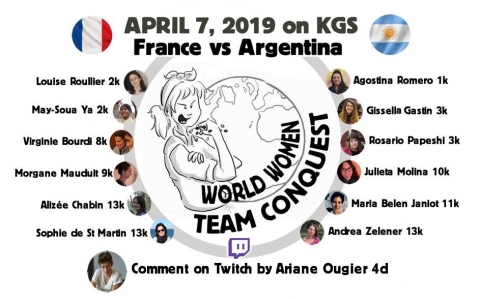Q) This Sunday the first match in the World Women Team Conquest (WWTC) took place. Can you tell us a little about the origins of this event, who dreamt up the concept?
A) Around the beginning of the 2018 French Women’s Championship certain players were asked for their opinion on the best way to raise its profile amongst women, and we were not convinced that an event which takes place once a year was the best approach. So we set up a group on Facebook to discuss the topic amongst those interested players. Several ideas were proposed, including that of showcasing women of all levels to inspire and motivate the players of the future and those who wouldn’t normally dare take part in a national championship.
A prior contact with the Women’s Commission of the Argentinian Go Association had showed me that other nations had already risen to the challenge of promoting diversity. I proposed to them to participate in this event, and they accepted with great enthusiasm.
The general idea is to propose balanced teams of between 5 to 10 players, (so for the first match France adjusted their team to match Argentina’s level) for an exhibition event, broadcast with live commentary on Twitch.
The WWTC has a double objective: to highlight the players themselves, and to make known the various go federations and associations, and their work for diversity.
Q) You've chosen a somewhat curious title for your event - World WomenTeam Conquest. Does it really mean that you hope to conquer the world (with go)?
A) All the French players chose the name together, we especially wanted to make it a fun event, and yes, of course we want to conquer the world through go! Who runs the world? Go girls!
Q) Argentina and France were the first two countries to play, who else can we expect to see joining in the fun?
A) The first edition against Argentina was a beautiful moment of sharing and friendship, completed perfectly by the 3-3 drawn scoreline. Since announcing the event, other nations have contacted me, and it will be my pleasure to organise further events, the next of which will probably be France v Romania, with a line up of promising and high level players.
Q) But to return to a previous question, this is astonishing isn’t it? Instead of trying to destroy the other side, like in the PGETC, you're offering a match on equal terms. Can such an idea really catch on?
A) Indeed, of course we considered to play only our best players, even if it meant to crush nations who are not lucky to have (for now!) the same level of play. But why? International tournaments already exist for such a format. Rather, I sought to promote “go for all" - something that could be envied by all players. This is an exhibition match, as even some professional matches can be, where the result of the game is not the reason to play. Like this, we can offer interesting games to watch and comment, not something were one player is demolished in thirty moves! The history of Go is not the same in the countries outside of Japan-China-Korea, so for example, one hope of the WWTC is to promote the game in the younger nations. Conversely, the edition against Romania will bring together the best players of both nations, because the development of go their was quite similar to that of France.
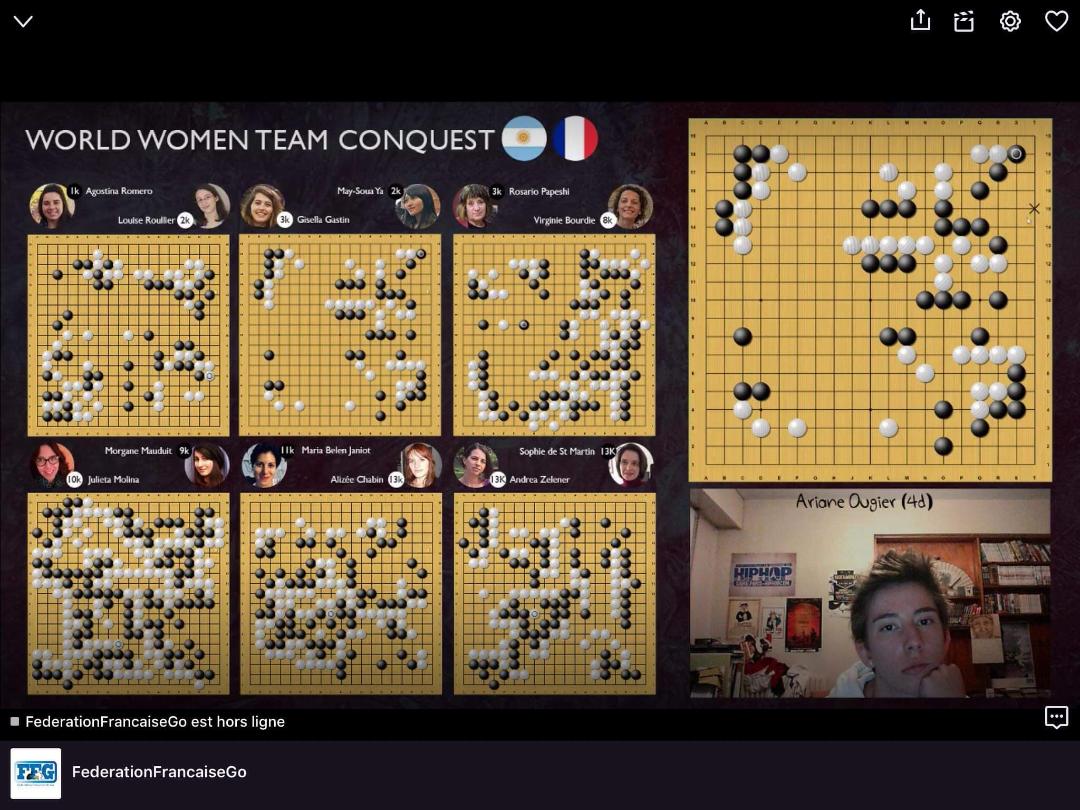
Q) Like many events recently, your event featured live commentary on Twitch. Do you feel this medium has a real potential to expand the audience of Go beyond its clique, or is it a case of the clique expanding to fill its available mediums.
A) I wasn’t used to Twitch, but given the international vocation of the event, the medium seems entirely natural. We were lucky to have a strong commentator in the shape of Ariane Ougier (4-dan) to present the games in English, thus making it interesting for players outside of the competing countries. The success of previous transmissions by the EGF, or other streamers - in particular Christopher Annachachibi alias HisokaH de Fulgurogo - makes me think that Twitch has a potential to creates synergies within different go communities around the world.
Q) Which event was most popular, the Transatlantic Pro Challenge, or your own?
A) (Laughs) Unfortunately an error on my part due to the change of time in France, rather superimposed the two events, and I apologize to the players! I will be more careful from now on, but it did not stop us from being 100% behind Mateusz!
Q) Who are your own female role models inside and outside of go?
A) As I’m rather new to go, I don’t know well the leading lights. In terms of players, I really like Rina Fujisawa and Ueno Asami, but I admit that I do not know many top professional players. I was pleasantly surprised to see that when I opened a think tank on women's go, several professional players stepped forward to support it! In France, Astrid Gaultier without any hesitation, but also Ariane Ougier, the first French woman to reach the 4D level, I hope she will go even higher! (But I hope to beat her one day anyway). Outside go, the incredible figure of Marie Marvingt, adventress, inventor and first woman in many fields, inspires me a lot.
Q) I've seen it written that women's only events, although more attractive to the competitors, eventually restrict the progression of the players because of the limited field. Do you think there is any truth in that?
A) It's a complex question. Given the paucity of women’s competitions, I do not think they can impact in any way the level of the players. However, this is also what we questioned and allowed the creation of the WWTC, the need for women's competitions in mind-sports is debatable. Theoretically there are no "physical" differences that prevent us from competing at the same level as men. Yet, we must take into account the historically low rate of women playing chess / go ... We generally concluded that a national women's championship was certainly not ideal, but a necessary thing to stop, in the future, having to ask yourself these kinds of questions. For my part, I decided to participate in the mixed and women's championships, like those of Pairgo, each trying, with all their flaws, to encourage a female go. There is a great deal of real work to do to make notable improvements, the easiest of which would probably be to pay special attention when welcoming newcomers to go clubs. But above all, we must create spaces to exchange and imagine together what could be a more diverse go, open to players from all walks of life.
Q) Will we also see some pair go competition as part of this promotion?
A) One of the objectives of the pair go is, as I see it, the promotion of women's go. As with all initiatives it is not perfect, but probably it works in supporting of female go.
Often in pair go, the man is kind of in charge of the female player, which is sometimes difficult, but often helps (if the woman is weaker on the goban,) the pair can progress and face opponents with a much stronger level. Pair go already has a great reputation, we don’t have to be worried about its success in the long run. In purely sporting terms, it seems to me that the most interesting thing about pair go is that it takes more than just individual skill to win, successful cooperation is really necessary, and plays a bigger role.





